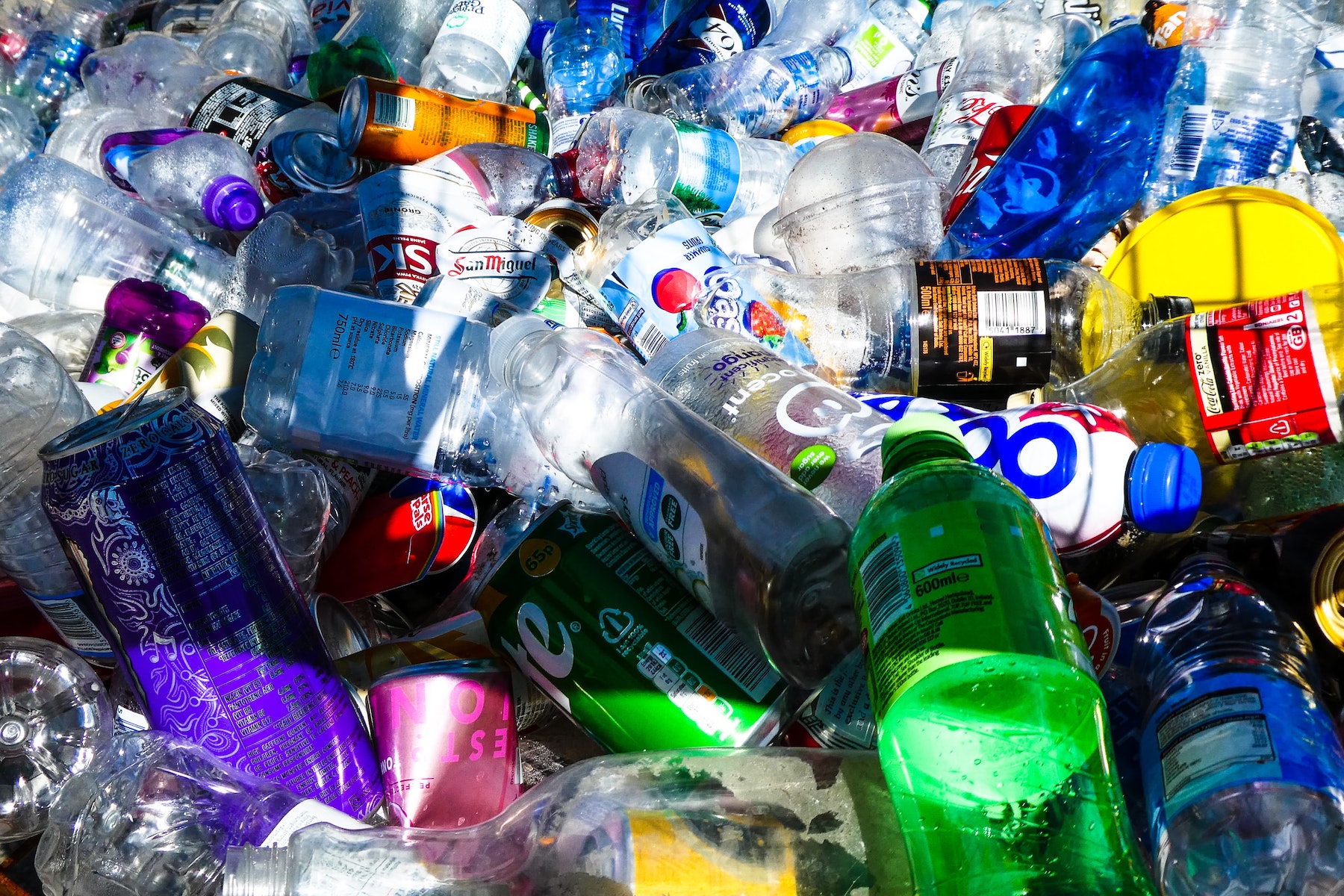The Garbage Artist
I didn’t grow up in a house with a garbage disposal. If I had, I think my life would have turned out differently.
Don’t get me wrong; we had a trash compactor in our kitchen, so it’s not like we went without unnecessary amenities. We tried our best to be good Americans and bought the gadgets that were marketed to us. And that compactor. Boy. Instead of three nights a week, with the compactor we only had to take the trash out twice. Just had to get those special liners and be willing to heave the extra weight of a denser, smellier bag. The humming motor of that yellow compactor remains a signature song in the soundtrack of my life.
But when my wife and I updated the kitchen, we filled our house with new music. The siren’s song of the in-sink garbage disposal. The whispering whir of this machine became a menacing grind when scraps from a plate fell into its mystery. Though I was at first nervous whenever I had to reach in to dislodge a prodigal butter knife or whatever, I immediately loved the disposal. I thought of it … I still think of it … as portal to the afterlife. We live. We waste. And at the end, both we and the trash we tore through are buried. The meaning of our existence is best captured in the toxic monuments of rot that grow each year.
But to flip the switch above the garbage disposal is to encounter the divine. The trash compactor could only compress the trash into a slightly smaller space. It is an invention focused on density. The disposal is an altogether different machine. Unconcerned with matters of density, the disposal aspires to eradication. Passing through the hole in your sink, that which was something become nothing, vanishing into another plane altogether.
The garbage disposal is the highest form of philosophy. This is the conclusion I’ve reached.
I began by experimenting, however.
I knew I could not throw the T-bone that remained of my steak that first night. Not yet. The first scrape of unchewable gristle and some bits of potato and bean dropped into the water pooled at the bottom of the chasm. A flip of the switch ignited the metal blades and the whooshing sound marked the matter’s transformation into nothingness. Only the steak bone ended up in the trash. Density was no longer a barrier.
I quickly read the maintenance instructions of the device. Food items only, no coffee grounds or egg shells. Transcendence had its limitation.
I dug through the garbage under the sink and pulled out a pile of orange peels. I prepared the water of their baptism, immersed them (fully) and sent them away. I peered into the hole with a flashlight and saw nothing but the spinning blades coming back to rest. Into the garbage I went. I transported every soft food item I could find.
The moment of conversion arrived when I was cleaning out the refrigerator. I opened a plastic container of chicken soup that my mother had made and insisted we take. Since my father had died and was cremated, she was compelled to cook for us at least once weekly. There were two problems created by this therapy. For one, she never considered the dietary needs of our family. Between the vegetarianism of my teenager, the normal pickiness of my pre-teen, and the dairy allergies of my wife, we had almost no ability to consume the food she made. It only served her sense of purpose.
The second issue was that my mother never understood basic mathematical concepts like fractions. The idea of making less food than she used to never crossed her mind, so we were left with a tub of gooing chicken soup that would soon swell out of its container if it wasn’t thrown out. This day, I eagerly took up the task. How much could the disposal take?
At first, I poured my mother’s food out slowly, letting it ooze and plop into the hole of the sink, water running, motor spinning. Quickly, the grinding sound gave way to the smooth hum again. I poured more, this time a larger amount. Then larger. Then I dumped the entirety of the leftovers into the garbage disposal, which easily handled its task. There was never a power such as this.
Over the next few days I felt a sense of excitement after each meal. Transformation became a game, then an obsession. The rules began to frustrate me. Why were biological objects fundamentally different from other soft things? Paper, for example, once came from trees, why was it now barred from its passage? And I took the challenge further. Were not all items produced by human beings biological, at least by proxy? I began with paper.
I took a sheet of paper, which had been on our fridge and contained shopping notes, and tore it into one-inch strips. I dropped them in the pool, waited for the chemistry to occur, then hit the motor. It all vanished quickly and the motor hummed along mightily. I was made bold. I placed a full sheet of paper in, let it stew a few moments and sent it along without a problem.
After having solved the biological problem, I moved on to egg shells and coffee grounds. A quick internet search indicated that eggs were trouble because the little membrane that keeps embryonic chickens alive can, over time, choke the spinning metal of the disposal. It was again time to experiment. I cracked all the eggs we had and poured the yokes down through. I filled our blender with the shells and turned it on high. Over time, the shells were beaten to a fine sand. I felt its texture and it was indeed gooey. I poured my egg sand into a glass and looked into the bottom of the blender. A firm rinsing took care of the residue, so I poured my experimental mixture down the drain, and ran the water, very hot and soapy, for an extra length of time. I was mastering the garbage disposal.
Coffee intimidated me. Its thick grounds seemed to have the potential to make a destructive sludge. It was a controversial topic however. The chopper could easily handle the grounds, it was known. The problem was in the drain. Too much coffee at once might college and cause a blockage. It seemed to me that this was not an issue with the garbage disposal, but with water-pressure. I ran a high-capacity hose from the garage into the kitchen and chased the grounds with the increased pressure. I ran into no difficulties.
One day, a glass broke and my experiments took an evolutionary leap.
A small piece of glass, about a half-inch in diameter, had fallen into the disposal, which could not break it down. I removed it by hand. It was a small problem. Something must be done.
I knew that if coffee grounds could flow if propelled by enough water pressure, then glass could too. Unlike coffee, the glass could not penetrate the threshold, however. I stared into the hole and pondered. The mysteries of this world would all be solved on the other side of that portal and I gazed through it, peering into its darkness. I thought of beach glass and how sand and moving water would eventually grind glass like this down into nothingness, as the garbage disposal does every day.
I scooped up the pieces of glass and took them to the garage. I wrapped them in a towel, the one we used to dry the car after a rain. I folded the shattered glass in the towel and beat the Hell out of it with a hammer. I turned it and beat the other side. Another turn, another beating. When I was finished, my frustrations with waste and decay satisfied, I gently opened the town and saw a fine power that the disposal and the hose easily ushered away.
It was euphoria.
I ran to the basement and found the three green tubs of red dishes my mother had given us years ago. She thought they were pretty and expected us to as well. They had never left the tubs, which I now dragged to the driveway and spent the rest of the evening hammering into a pile of red dust. When mixed with the sink’s water, the dust looked like the gore of slaughtered flesh. It became, as my philosophy predicted, biological. The sink, the hose, and the disposal, my own Trinity, finally annihilated these idols.
I stared at the empty sink and noticed a new circle of red, spiraling into the threshold. The red glass was gone and this was my own blood. I had cut my right ring finger while preparing the dishes, cups, and bowls for their final journey and my blood dripped, following them into the drain.
Garbage is the ultimate insult, denying holy annihilation.
This was my only thought as I put a bandage over my cut. I noticed my fingernails were growing long. I clipped them and, in solemn ritual, washed them into eternity. I ran my scratched, though trimmed fingers through my hair. I ran upstairs, grabbed my electric trimmer and shaved my hair into the sink. It washed away easily, and the hum of the garbage disposal carried on. I continued, offering the disposal the hair on my arms, legs, and chest. My shrinking was exhilarating and I looked at my toes and fingers as my thoughts ran wild with the lure of freedom. I thought back to that first steak and wondered if I’d made a mistake in throwing the t-bone into the trash can. Bone couldn’t be so different from coffee and glass.
A plan presented itself, I would begin at my toes, saving my hands for the work ahead. I wondered how far I could make it before someone else must take over my work. And as I am drawn nearer to the portal, will anyone complete my unbecoming?
Danny Anderson frequently writes about movies, music, and books for publications like PopMatters, Film Inquiry, the Mantle, and Sound the Sirens, among others. He is lately branching out into fiction as well. He also interviews people for the Sectarian Review Podcast. He lives in the Laurel Highlands region of Pennsylvania with his family. Find him @dannypanderson on Twitter.


